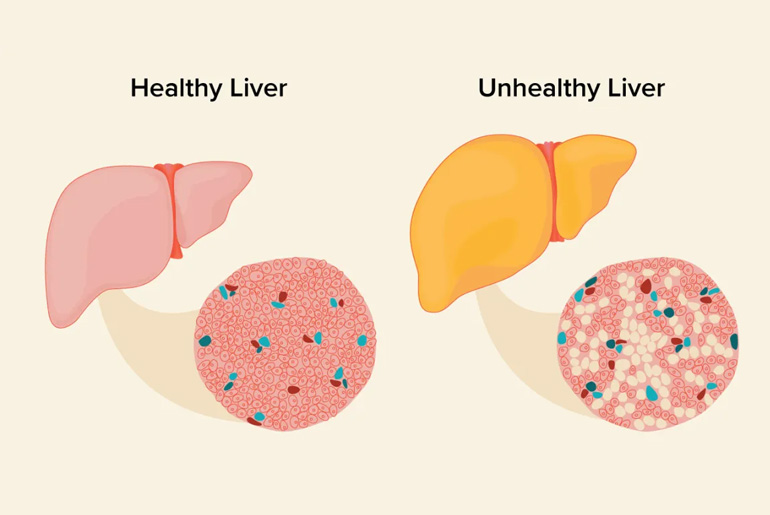Fatty liver disease in young individuals can be attributed to several factors, with lifestyle playing a major role in its development. Previously considered a condition primarily affecting middle-aged and older adults, fatty liver is now being diagnosed more frequently in younger individuals. Despite initially presenting with few visible signs or symptoms, the disease can progress to severe complications such as liver cirrhosis or liver cancer if left untreated. According to John Hopkins Medicine, fatty liver disease is characterized by the gradual accumulation of fat within the liver, leading to impaired liver function and subsequent liver injury.
To address this concerning trend and mitigate the risk of fatty liver disease, implementing lifestyle changes is crucial. These changes may include adopting a balanced diet low in saturated fats and sugars, engaging in regular physical activity to maintain a healthy weight, limiting alcohol consumption, and avoiding the use of tobacco products. Additionally, regular medical check-ups and screenings can aid in early detection and intervention, potentially preventing the progression of fatty liver disease and its associated complications in young individuals.
Indeed, while excessive alcohol consumption has long been associated with an increased risk of nonalcoholic fatty liver disease (NAFLD), unhealthy lifestyle factors such as poor diet and lack of exercise are emerging as significant contributors to the development of the condition. Moreover, chronic diseases like diabetes and hypertension can also heighten susceptibility to fatty liver disease. However, the encouraging aspect is that fatty liver disease, particularly in its early stages, can often be reversed or controlled through appropriate lifestyle modifications.
Lifestyle Adjustments for Fatty Liver Management:
Fatty liver disease is a condition characterized by the accumulation of fat in the liver, which can lead to inflammation, scarring, and liver damage if left untreated. It’s becoming increasingly common among young people due to factors like poor diet, sedentary lifestyle, obesity, excessive alcohol consumption, and insulin resistance. Here’s a detailed summary of the lifestyle changes recommended to prevent and manage fatty liver disease:
- Poor Diet: Consuming processed foods, saturated fats, sugars, and excessive calories contributes to fatty liver. A balanced diet rich in fruits, vegetables, whole grains, and lean proteins is recommended. Limit intake of sugary and fatty foods, opting for water and herbal teas instead of sugary drinks.
- Sedentary Lifestyle: Lack of physical activity is closely linked to fatty liver development. Engage in at least 30 minutes of moderate-intensity exercise most days of the week, such as brisk walking, jogging, cycling, or swimming. Reduce sedentary behavior by taking breaks from prolonged sitting and incorporating more movement throughout the day.
- Obesity: Excess body weight, especially abdominal obesity, is a significant risk factor for fatty liver disease. Achieve and maintain a healthy weight through portion control, mindful eating, and increased physical activity.
- Excessive Alcohol Consumption: While fatty liver disease is often associated with non-alcoholic causes, excessive alcohol intake can also lead to fatty liver, especially in young adults who engage in binge drinking. Limit alcohol consumption or abstain from it altogether, especially for individuals with fatty liver.
- Insulin Resistance and Diabetes: Insulin resistance, commonly associated with obesity and unhealthy lifestyle habits, can contribute to fatty liver disease, particularly in individuals with type 2 diabetes. Manage blood sugar levels through a balanced diet, regular exercise, and medication if prescribed. Monitor carbohydrate intake and opt for complex carbohydrates to stabilize blood sugar levels and improve liver health.
Adopting these healthy habits early on can significantly halt the progression of fatty liver disease and promote overall liver health. It’s crucial for young individuals to prioritize lifestyle changes to prevent the development or progression of fatty liver disease and maintain a healthy liver.
Disclaimer:
The information contained in this article is for educational and informational purposes only and is not intended as a health advice. We would ask you to consult a qualified professional or medical expert to gain additional knowledge before you choose to consume any product or perform any exercise.







